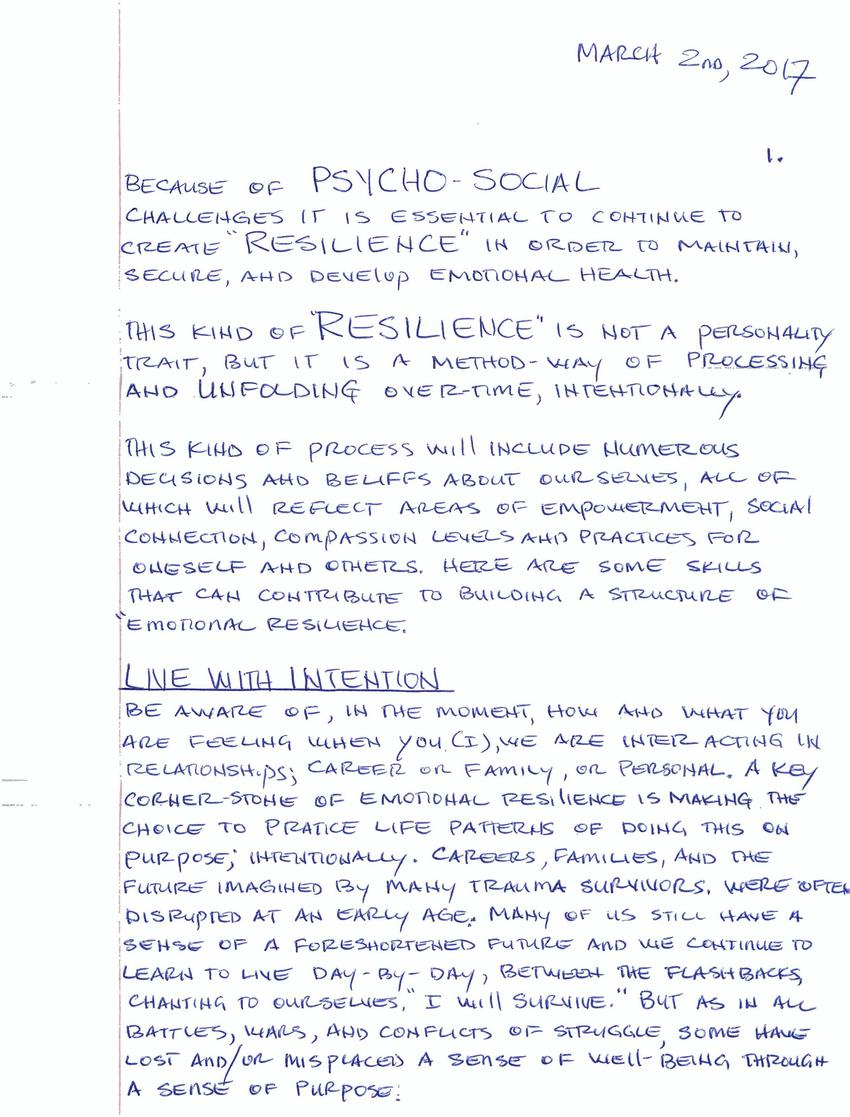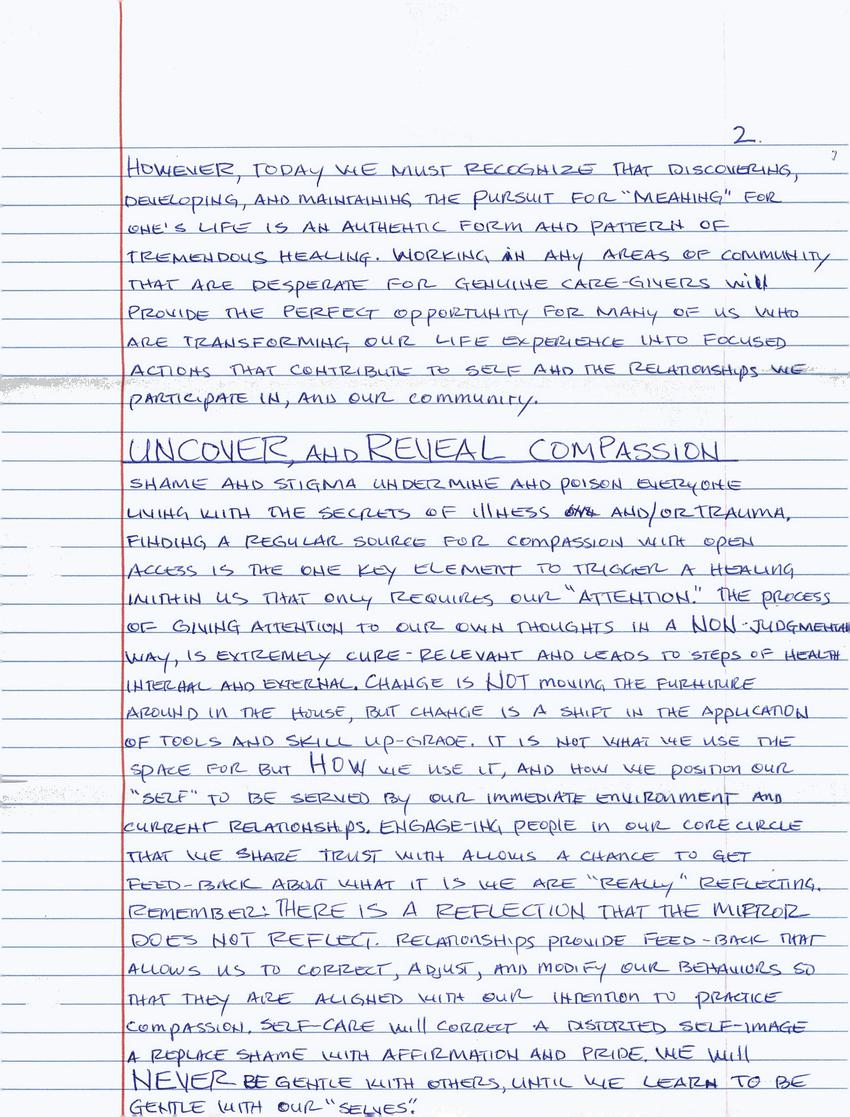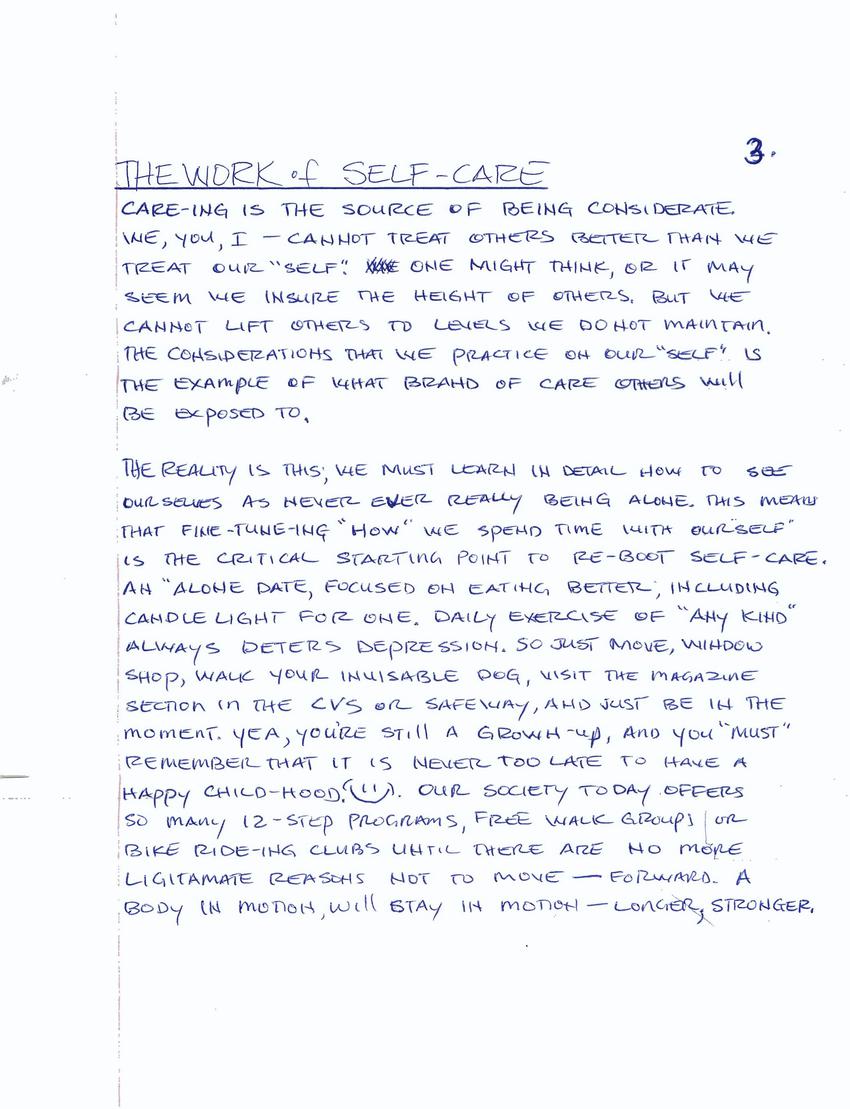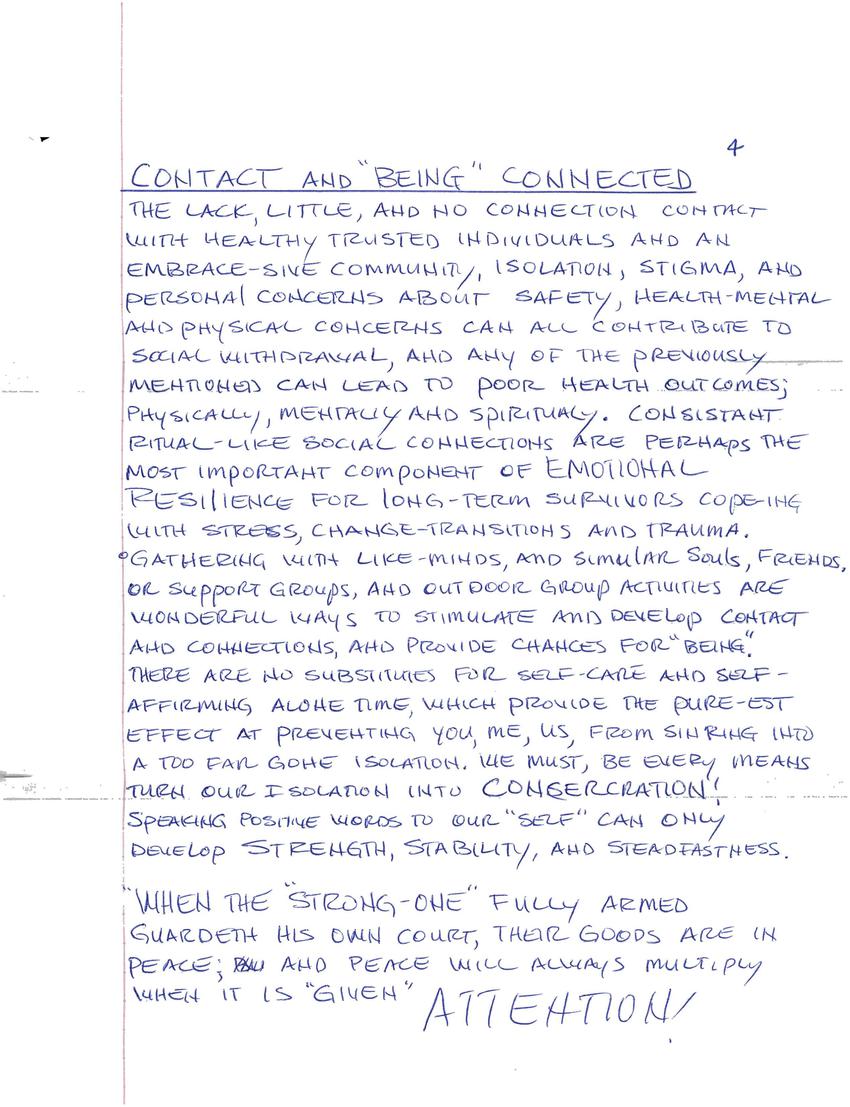
Transcription
March 2, 2017
Because of psycho-social challenges, it is essential to continue to create resilience in order to maintain secure and develop emotional health.
This kind of resilience is not a personality trait, but it is a method-way of processing and unfolding over-time, intentionally.
This kind of process will include numerous decisions and beliefs about ourselves, all of which will reflect areas of empowerment, social connection, compassion levels and practices for oneself and others. Here are some skills that can contribute to building a struggle of emotional resilience.
Live with Intention
Be aware of in the moment, how and what you are feeling when you (I), we are interacting in relationships: career or family or personal. A key cornerstone of emotional resilience is making the choice to practice life patterns of doing this on purpose, intentionally. Careers, families and the future imagined by many trauma survivors. Were often disrupted at an early age. Many of us still have a sense of a foreshortened future and we continue to learn to live day-by-day, between the flashbacks, chanting to ourselves. I will survive. But as in all battles, wars, and conflicts of struggle, some have lost and/or misplaced a sense of well-being through a sense of purpose.
However, today we must recognize that discovering, developing, and maintaining the pursuit for meaning for one's life is an authentic form and pattern of tremendous healing. Working in any areas of community that are desperate for genuine caregivers will provide the perfect opportunity for many of us who are transforming our life experience into focus actions that contribute to self and the relationships we participate in and our community.
Uncover and Reveal Compassion
Shame and stigma undermine and poison everyone living with the secrets of illness and/or trauma, finding a regular source for compassion with open access is the one key element to trigger a healing within us that only requires our "attention." The process of giving attention to our own thoughts in a non-judgmental way is extremely cure relevant and leads to steps of health, internal and external. Change is not moving the furniture around in the house, but change is a shift in the application of tools and skill upgrade. It is not what we use the space for but how we use it, and how we position our "self" to be served by our immediate environment and current relationships.
Engaging people in our core circle that we trust allows a chance to get feedback about what it is we are really reflecting. Remember: there is a reflection that the mirror does not reflect. Relationships provide feedback that allows us to correct, adjust, and modify our behaviors so that they are aligned with our intention to practice compassion. Self-care will correct a distorted self-image and replace shame with affirmation and pride. We will never be gentle with others until we learn to be gentle with ourselves.
The Work of Self-Care
Caring is the source of being considerate. We, you, I—cannot treat others better than we treat our "self." One might think or it may seem we insure the height of others. But we cannot lift others to levels we do not maintain. The considerations that we practice on our "self" is the example of what brand of care others will be exposed to.
The reality is this: we must learn in detail how to see ourselves as never ever really being alone. This means that fine-tuning "how" we spend time with our "self" is the critical starting point to reboot and self-care. An alone date, focused on eating better, including candlelight for one. Daily exercise of any kind always deters depression. So just move, window shop, walk your invisible dog, visit the magazine section in the CVs or safeway, and just be in the moment. Yeah, you're still a grown-up and you must remember that it is never too late to have a happy childhood. :) Our society today offers so many 12-step programs, free walk groups or bike riding clubs until there are no more legitimate reasons not to move forward. A body in motion will stay in motion—longer, stronger.
Contact and Being Connected
The lack, little, and no connection contact with healthy trusted individuals and an embrace-sive community, isolation, stigma, and personal concerns about safety, health, mental, and physical concerns can all contribute to social withdrawal and any of the previously mentioned can lead to poor health outcomes (physically, mentally, and spiritually). Consistent ritual-like social connections are perhaps the most important component of emotional resilience for long-term survivors coping with stress, change-transitions, and trauma.
*Gathering with like-minds and similar souls, friends, or support groups, and outdoor group activities are wonderful ways to stimulate and develop contact and connections, and provide chances for "being". There are no substitutes for self-care and self-affirming alone time which pride the purest effect of preventing you, me, us, from sinring into a far gone isolation. We must be every means turn our isolation into consecration! Speaking positive words to ourselves can only develop strength, stability, and steadfastness.
When the strong one fully armed guardeth his own court, their goods are in peace, and peace will always multiply when it is given attention!
Other posts by this author
|
2021 jun 24

|
2021 jan 26

|
2020 dec 28

|
2019 nov 17

|
2019 nov 17

|
2019 nov 17

|
More... |





Replies